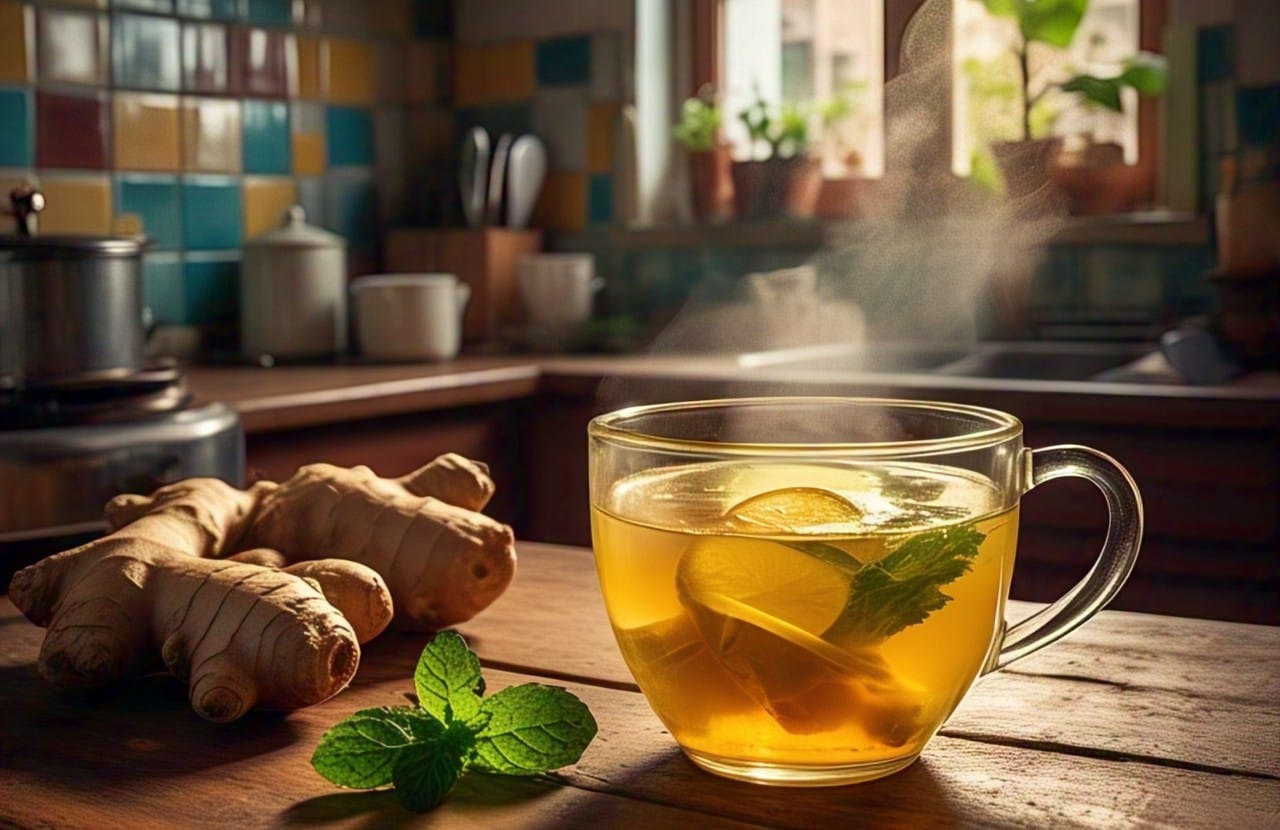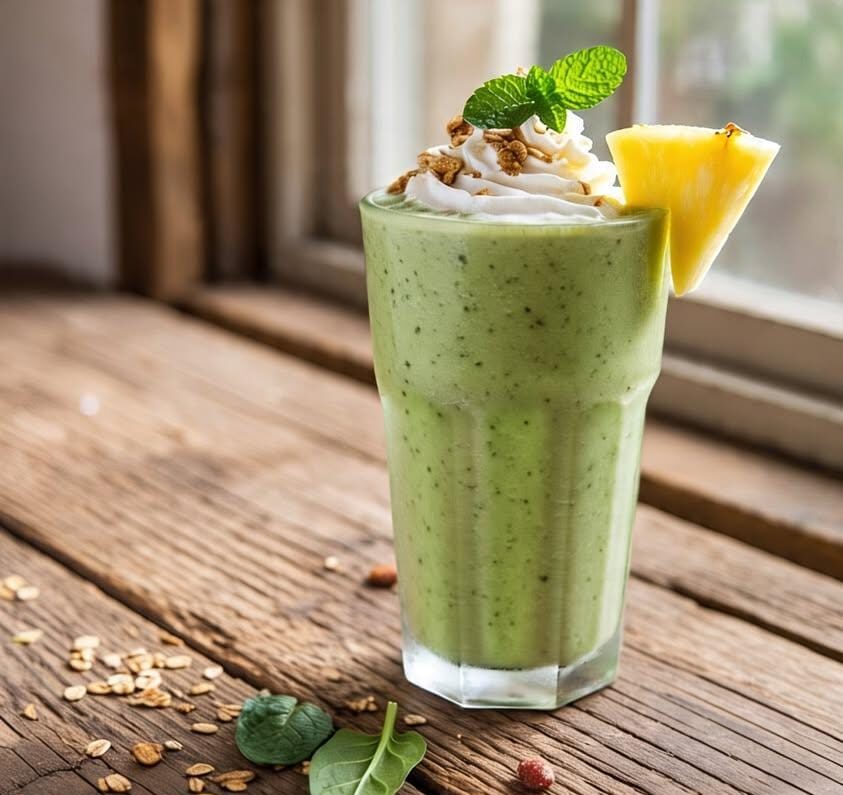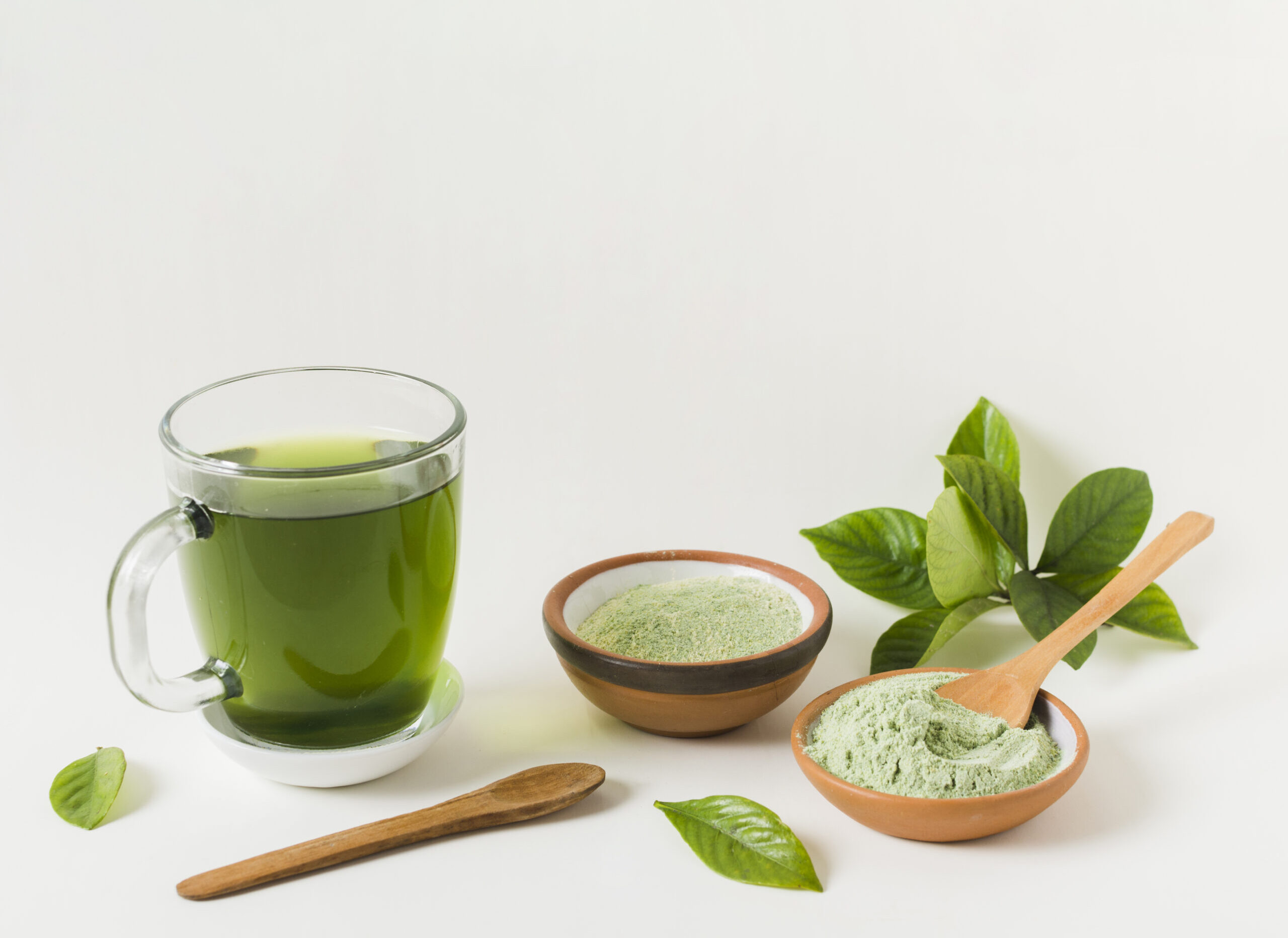Ginger herbal tea is one of the most beloved and invigorating beverages known for its bold, zesty flavor and an array of health benefits. This aromatic and spicy tea, made from fresh ginger root, has been used for centuries in traditional medicine to support digestion, boost immunity, and promote overall well-being. Whether you’re feeling under the weather, experiencing digestive discomfort, or simply craving a warm, soothing drink, ginger tea is an excellent choice. In this blog, we’ll explore the many health benefits of ginger tea, provide an easy recipe for making it at home, and discuss why this herbal tea should be a staple in your wellness routine.
What is Ginger Tea?
Ginger tea is made by steeping fresh ginger root (Zingiber officinale) in hot water. Ginger is a flowering plant native to Southeast Asia, and its rhizomes (underground stems) are prized for their spicy, peppery flavor and medicinal properties. The active compounds in ginger, such as gingerol, are responsible for its health-boosting effects, which include anti-inflammatory, antioxidant, and antimicrobial properties.
Ginger tea is naturally caffeine-free, making it a great option for anyone looking for a soothing and health-boosting drink without the jitters that can come from caffeinated beverages. The warm, spicy kick of ginger makes it a perfect drink for both relaxing and invigorating the body.
The Health Benefits of Ginger Tea
Ginger tea is more than just a flavorful drink—it’s packed with powerful compounds that can improve your health in a variety of ways. Below are some of the most notable benefits of ginger tea:
1. Promotes Healthy Digestion
One of the most well-known benefits of ginger tea is its ability to aid digestion. Ginger has been shown to stimulate the production of digestive enzymes, which help break down food more efficiently and promote better absorption of nutrients. Drinking ginger tea after meals can help alleviate symptoms of indigestion, bloating, and gas. It also helps reduce nausea and vomiting, making it an excellent remedy for motion sickness or morning sickness during pregnancy.
Ginger has also been used to relieve symptoms of irritable bowel syndrome (IBS) and other digestive disorders. It works by relaxing the muscles of the gastrointestinal tract and easing discomfort, making it a go-to beverage for anyone looking to soothe their stomach.
2. Reduces Inflammation and Pain
Ginger is a natural anti-inflammatory agent, making it effective in reducing inflammation and pain in the body. The gingerol compound in ginger helps block the production of pro-inflammatory cytokines, which are chemicals that contribute to inflammation. Drinking ginger tea regularly can help ease symptoms of inflammatory conditions like arthritis, muscle pain, and joint pain.
For people who experience chronic pain or soreness, ginger tea can be a natural alternative to pain-relief medications, providing relief without the side effects of pharmaceutical drugs.
3. Boosts Immunity
Ginger is packed with antioxidants, which help to neutralize free radicals and protect the body from oxidative damage. These antioxidants help strengthen the immune system and improve the body’s ability to fight off infections and diseases. Drinking ginger tea regularly can help protect against common illnesses like colds and flu.
Additionally, ginger has antimicrobial properties that can help fight off bacteria and viruses, making it an excellent remedy for supporting your immune health, especially during cold and flu season.
4. Improves Circulation and Heart Health
Ginger is known to improve blood circulation by helping to relax blood vessels and improve the flow of oxygen and nutrients throughout the body. Better circulation means more efficient delivery of nutrients to vital organs, which can improve overall health and energy levels.
Ginger has also been linked to improved heart health by helping to lower cholesterol levels and reduce blood pressure. Studies have shown that regular consumption of ginger can help reduce the risk of cardiovascular diseases by supporting healthy blood circulation and reducing inflammation in the arteries.
5. Relieves Stress and Anxiety
The spicy and warming nature of ginger tea makes it a natural mood booster. Ginger has adaptogenic properties, which means it helps the body adapt to stress and balance out cortisol (the stress hormone). Drinking ginger tea can help relieve feelings of stress, anxiety, and fatigue, making it an excellent choice for moments when you need to relax and recharge.
The warming effect of ginger also helps promote a sense of well-being and relaxation, making it an ideal beverage to enjoy during stressful times or after a long day.
6. Supports Weight Loss
Ginger has thermogenic properties, meaning it helps increase the body’s internal temperature and metabolic rate. This can lead to enhanced fat burning and support healthy weight management. Ginger also helps curb appetite and improve digestion, which can prevent overeating and promote a balanced metabolism.
Incorporating ginger tea into your daily routine can be a helpful tool for those looking to support their weight loss goals in a natural and healthy way.
7. Enhances Mental Clarity and Focus
Ginger has been shown to improve cognitive function and enhance mental clarity. The antioxidants and anti-inflammatory compounds in ginger help protect brain cells from oxidative stress, which can lead to cognitive decline over time. Drinking ginger tea may help improve memory, focus, and concentration, making it an excellent choice for those needing a mental boost.
Ginger Tea Recipe
Making ginger tea at home is incredibly easy and requires only a few simple ingredients. Here’s a basic recipe to help you brew a fresh, soothing cup of ginger tea:
Ingredients:
- 1-2 inches of fresh ginger root (or 1-2 teaspoons of dried ginger)
- 1-2 cups of water
- Honey or lemon (optional)
Instructions:
- Prepare the Ginger: Peel the ginger root and slice it into thin pieces. You can also grate the ginger if you prefer a stronger flavor.
- Boil the Water: Bring 1-2 cups of water to a boil in a small saucepan.
- Steep the Ginger: Once the water is boiling, add the sliced or grated ginger to the water. Let it simmer for 5-10 minutes, depending on how strong you want the flavor.
- Strain and Serve: After the tea has steeped, remove the saucepan from the heat and strain the ginger out. Pour the tea into a mug.
- Optional Additions: Add honey or a squeeze of lemon for extra flavor if desired.
- Enjoy: Sip and enjoy the warming, soothing effects of your homemade ginger tea.
Final Thoughts
Ginger tea is not only a flavorful and refreshing drink but also a powerful natural remedy with a host of health benefits. From improving digestion and reducing inflammation to boosting immunity and supporting heart health, ginger tea can be a valuable addition to your wellness routine. Whether you enjoy it as a daily ritual or turn to it when you need comfort or relief, ginger tea offers both flavor and function in one cup.
So, the next time you need a zesty, health-boosting drink, reach for a cup of ginger tea and let its many benefits work wonders for your body and mind.





